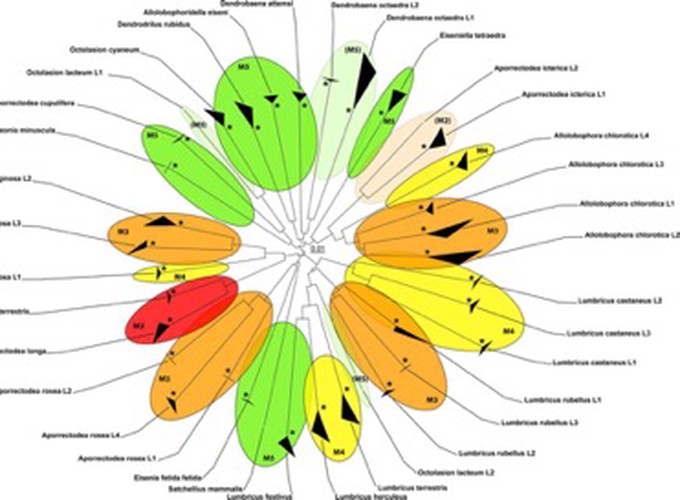A reference library of DNA barcodes for the earthworms from Upper Normandy: Biodiversity assessment, new records, potential cases of cryptic diversity and ongoing speciation
Abstract
This study presents the assemblage of an exhaustive reference library for one of the major groups of soil invertebrates, earthworms, focused on the long sampled French location of Upper Normandy. Previous morphological appraisal of the diversity, enumerated 20 species in the area. After an extensive campaign of DNA barcoding aiming at several typical habitats of Upper Normandy, 22 species were found and 561 sequences were produced. A total of 36 discrete Molecular Operational Taxonomic Units (MOTUs) were detected among these species. Twenty-two of these MOTUs corresponded to several complexes of MOTUs within the morphological boundaries of 8 species. Based on a previous set of investigations on the Allolobophora chlorotica, Aporrectodea rosea, Lumbricus rubellus and Aporrectodea icterica complexes and on the analysis of the distribution of pairwise comparisons, we were able to hypothesize on the specific and subspecific status of the MOTUs in the 8 complexes detected. Globally, up to 21 of the 36 MOTUs detected potentially corresponded to species level entities. The remaining 15 MOTUs were considered as putative subspecies where gene flow can still be present between the members of a complex. Discussed in the perspective of previously detected physiological and ecological discrepancies between some of these specific but also subspecific MOTUs, these results emphasize the need to take into account all those genetic entities and to annotate them consistently throughout the literature. As a consequence, the genotyping of specimens in surveys and experiments is highly recommended when complexes of MOTUs are detected. This study also illustrates the usefulness of the DNA barcoding approach as a fast and powerful exploration tool for communities and therefore as a premise for more specific and integrative approaches.
